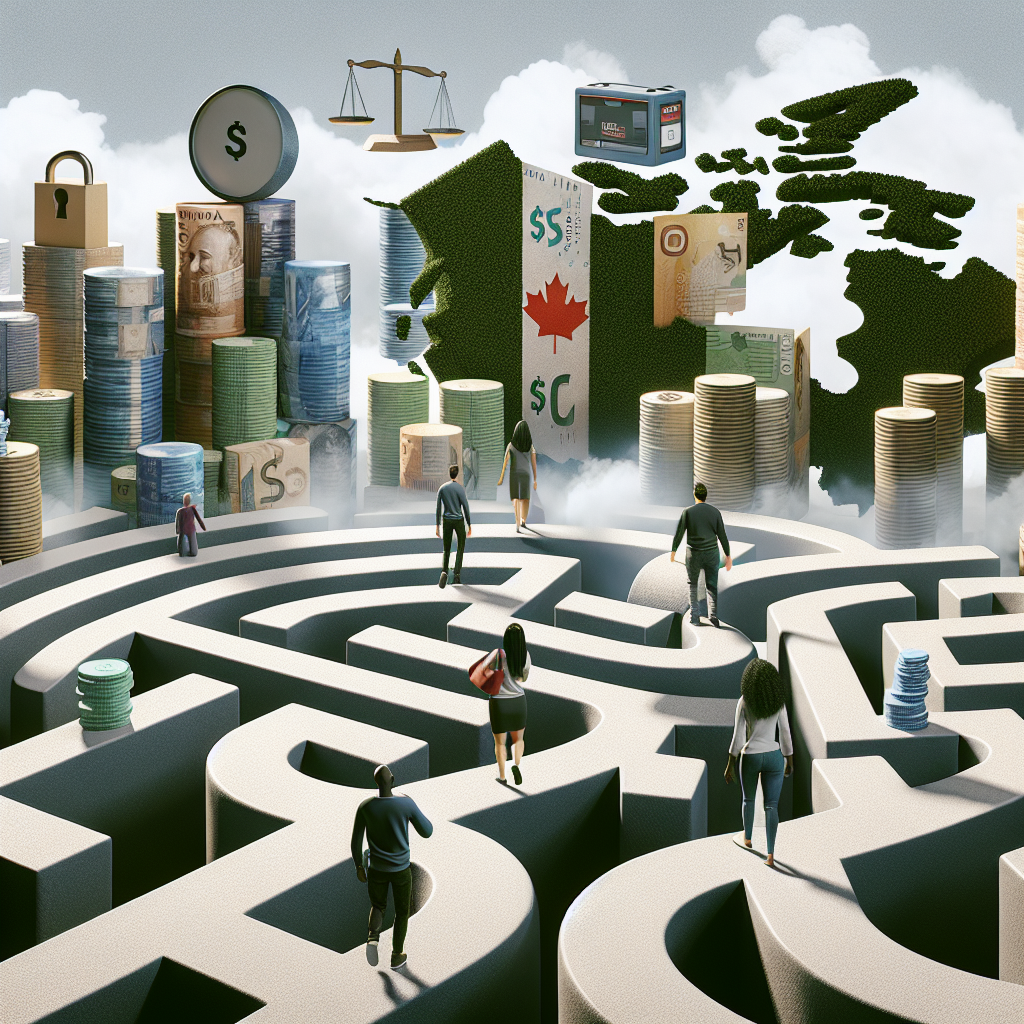===INTRO:===
Navigating debt can feel like wandering through a labyrinth; each turn brings a new challenge, especially for Canadians confronting the impact of credit bureau collections. This complex landscape can lead to anxiety, financial strain, and social stigma, making it essential to understand how collections affect your credit score and overall financial health. With the right insights and strategies, you can regain control and emerge stronger from this daunting experience. This article will guide you through the nuances of Canada’s credit bureau collections, revealing how to navigate this intricate web effectively.
Understanding the Complex Landscape of Credit Bureau Collections
Navigating the intricate world of credit bureau collections in Canada requires a deep dive into how these institutions operate. Credit bureaus, such as Equifax and TransUnion, play a pivotal role in assessing an individual’s creditworthiness. They collect data from various sources, including lenders and financial institutions, to create a comprehensive credit report that reflects one’s financial behavior. When debts go unpaid, they are often handed over to collection agencies, which can report the delinquency to these bureaus, severely impacting the borrower’s credit score.
A collection account can stay on your credit report for up to six years in Canada, and the repercussions can extend far beyond just a number. Lenders, landlords, and even potential employers may check your credit history, and a poor score can lead to higher interest rates, denied applications, or unfavorable rental conditions. Understanding this process is crucial as it emphasizes the urgency of addressing debts before they escalate into collections. Furthermore, the stark reality is that many Canadians are unaware of how their actions impact their credit report until it’s too late, leading to a cycle of anxiety and regret.
Moreover, many myths surround credit bureau collections that can further complicate matters. For instance, some believe that paying a collection account will immediately remove the negative mark from their credit report. However, while settling a debt can improve future creditworthiness, the record of the collection will still linger for the designated time frame. Understanding these nuances allows individuals to make informed decisions about their financial futures, emphasizing the importance of education and proactive management of credit.
How Debt Affects Canadians: Insights and Real-Life Stories
The impact of debt on Canadians extends beyond financial implications; it has profound effects on mental health, relationships, and overall quality of life. Many individuals find themselves trapped in a cycle of borrowing and repayment, leading to stress and anxiety. For example, Sarah, a single mother in Toronto, found her credit score plummeting after missing payments due to unexpected medical bills. The weight of her financial situation took a toll on her mental well-being, leading her to feel isolated and overwhelmed. Stories like Sarah’s highlight the emotional landscape that often accompanies financial struggles and emphasize the need for empathy and understanding in these situations.
Real-life stories reveal that the pressure of debt can lead to drastic decisions. John, a young professional, faced harassment from collection agencies after falling behind on his student loans. The relentless phone calls and threats of lawsuits exacerbated his anxiety, making it difficult to focus on his career. This cycle of stress not only affected his productivity but also strained his personal relationships, as friends and family became concerned about his well-being. Such narratives underscore the multifaceted consequences of debt, illustrating how it can shape one’s life in ways that go beyond mere numbers.
However, there is hope. Many Canadians have successfully navigated their way out of debt through various strategies, from negotiating settlements with creditors to seeking financial counseling. These success stories serve as powerful reminders that recovery is possible. They highlight the importance of building a support system and seeking professional advice to reclaim one’s financial health. By sharing these experiences, we can foster a community that not only understands the challenges of debt but also empowers individuals to take action and transform their circumstances.
===OUTRO:===
The journey through Canada’s credit bureau collections can be daunting, but understanding the landscape is the first step toward reclaiming your financial health. By recognizing the emotional and practical impacts of debt, individuals can take proactive measures to improve their situations. Whether it’s educating oneself about credit scores, seeking financial counseling, or sharing experiences with others, the road to recovery is paved with knowledge and support. Don’t let debt define you; instead, take charge of your financial future and explore the paths available to you. Together, we can navigate this complex terrain and emerge stronger, more resilient, and equipped for the challenges ahead.
Navigating Payday Loans in Canada: A Bad Credit DilemmaExploring Alberta’s Online Payday Loan Landscape: Risks and RealitiesNavigating the Payday Loan Landscape in Victoria, BCRelevant LinkRelevant LinkRelevant Link
